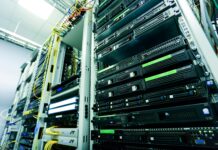
The rise of artificial intelligence (AI) often incites fear about job displacement, with concerns about robots and machines taking over human roles. While the risk of automation is significant, with up to 30% of current work hours in the U.S. potentially automatable by 2030, a smarter approach would be to embrace AI as a tool that can enhance and elevate human skills rather than replace them entirely. This perspective allows for future-proofing careers by learning to work synergistically with AI.
AI excels in processing large volumes of data, pattern recognition, and optimizing processes, making it highly effective for tasks like natural language processing and image recognition. However, it still struggles with general intelligence, emotional intelligence, creativity, and high-level reasoning, which are inherently human capabilities. For knowledge workers such as lawyers, accountants, and consultants, AI can significantly increase productivity by handling data-intensive tasks, drafting documents, and uncovering insights, while humans provide critical thinking and contextual understanding.
Creative professionals and those in fields like science, engineering, operations, and IT can leverage AI to enhance their work rather than fear it. AI can aid in generating ideas, enhancing designs, solving complex problems, and optimizing processes, serving as a powerful assistant that frees up human talent for higher-order tasks. Future-proofing careers involves continuous learning, experimentation, and collaboration with AI, fostering a culture of innovation and adaptability. Embracing AI as a transformative tool can lead to growth, creativity, and sustainable success in an AI-driven world.
- Continuous Learning:
- Embrace lifelong learning.
- Acquire skills that complement AI, like data analysis, programming, and critical thinking.
- Familiarize yourself with AI tools and interfaces (e.g., ChatGPT, Midjourney, DALL-E).
- Experimentation and Innovation:
- Identify and automate repetitive, data-heavy tasks.
- Use AI to explore new creative concepts and directions.
- Implement AI workflows to streamline and accelerate processes.
- Collaboration:
- Foster a culture of human-AI collaboration.
- Form interdisciplinary teams combining domain expertise with AI proficiency.
- Encourage colleagues to participate in AI pilot programs.
- Ethical Frameworks:
- Develop clear ethical guidelines for AI use.
- Promote transparency, fairness, and accountability in AI deployment.
- Engage in industry-wide discussions on responsible AI practices.
- Adaptability:
- Stay agile and adaptable to technological changes.
- View change as an opportunity for growth.
- Encourage curiosity and exploration of new technologies and methodologies.
Read the full article here on Forbes.



















